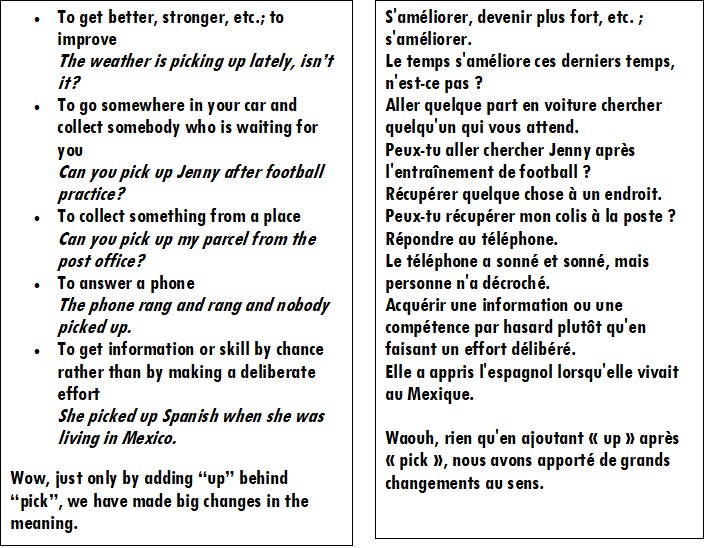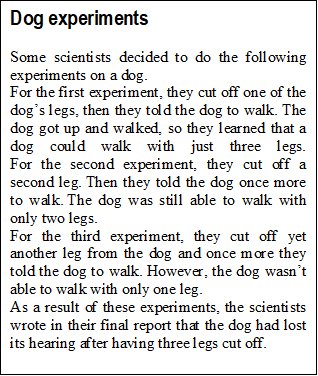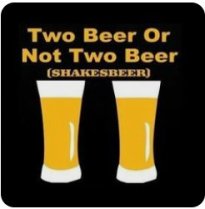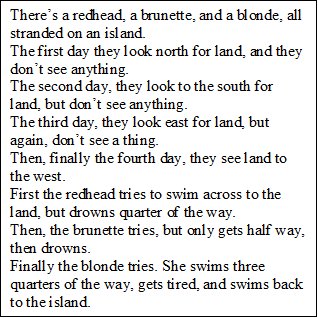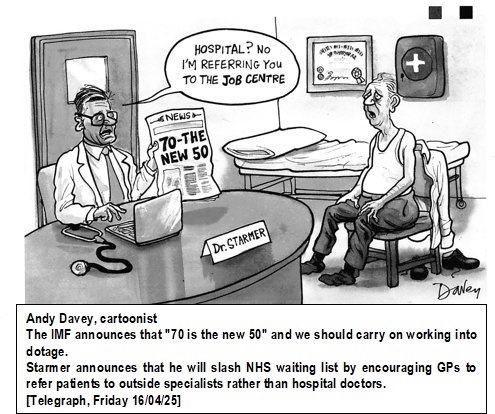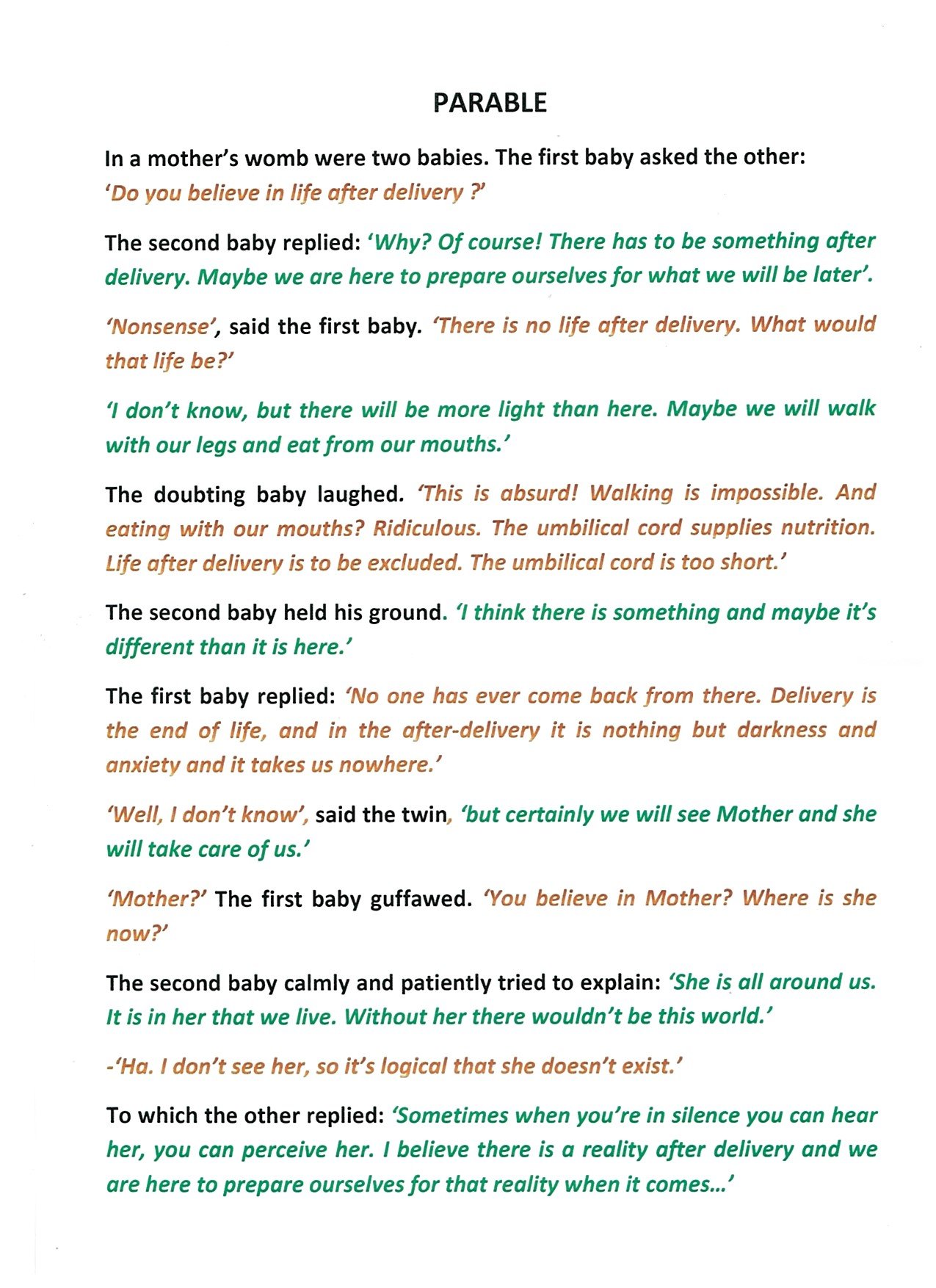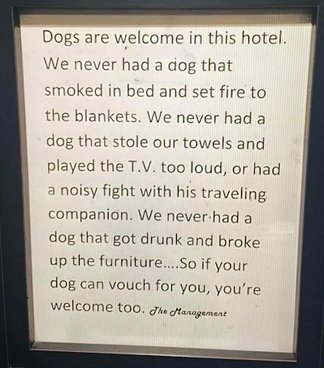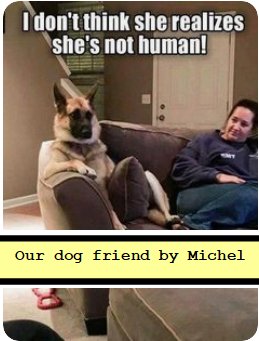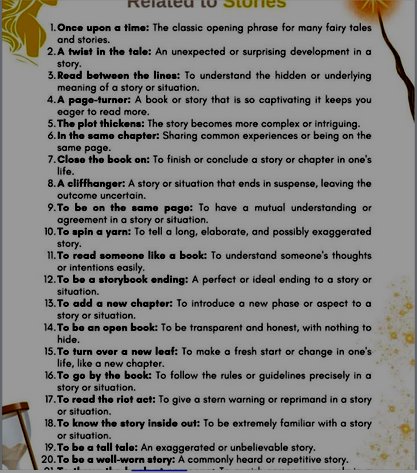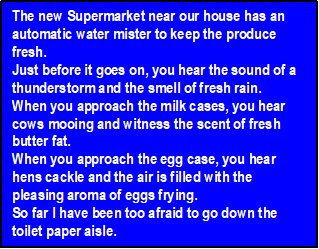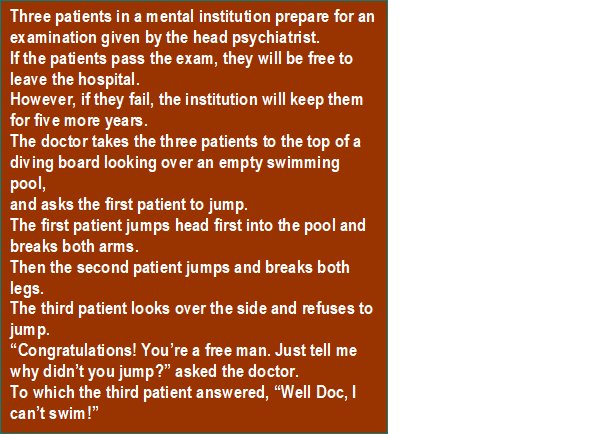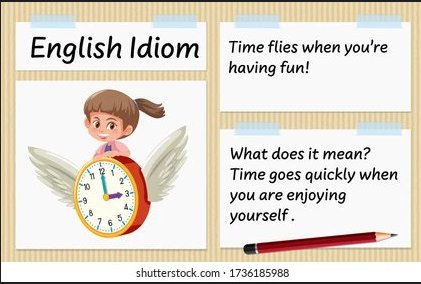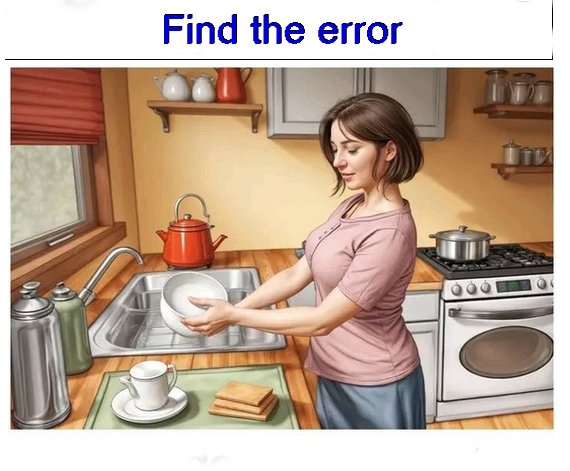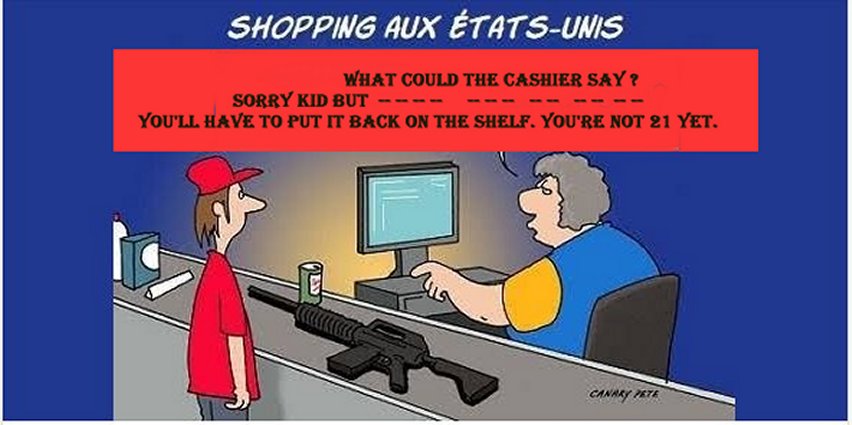Jeudi 22 MAI Pick up
Jeudi 15 MAI
dogs story
FLORE-PARABLE. Jeudi 27 avril
Jeudi 3 april.
L27 1 Cette table est-elle libre ? Non je suis désolé. Is this table free ? No I am sorry.
2 Elle habite quelque part près de chez vous. She lives somewhere near you.
- 3 La nourriture dans ce restaurant est affreuse. The food in this restaurant is dreadful.
5 Ne t’en fait pas, ils vont bien. Don’t worry. They’re OK.
6 J’ai trois billets gratuits. I’ve got three free tickets.
7 Je ne trouve de table nulle part. I can’t find a table anywhere.
- 8 Ils essaient un bar à vin près de leur maison. They try a wine bar near their home.
10 Ne vous en faites pas ce n’est pas très chaud. Don’t worry it’s not very hot.
L’agent de police et le guitariste.
Un jeune gars aux cheveux longs et l’allure minable jouait de la guitare dans une gare du métro de Londres. Un agent de police vint à lui et lui dit : « Vous ne pouvez pas faire ça ici. Je vous demande de m’accompagner. »
« Certainement, dit le guitariste, Qu’est-ce que vous voulez chanter ? »
A
12 MarsL 26 1 Bonsoir et bienvenue. Good evening and welcome.
2 Je veux être près de la cuisine. I want to be close to the kitchen.
3 Le restaurant ferme le week-end. The restaurant closes at the week-end.
4 Nous sommes complets ce soir. We are fully booked this evening.
5 Je suis vraiment désolé d’être en retard. I am very sorry I’m late.
6 Mettez-nous dans la zone non fumeurs s.v .p. Put us in the no-smoking section please. 7 Il est très proche de sa sœur. He is very close to his sister.
8 Réservez-moi une table pour huit. Book me a table for eight.
9 Je ne veux pas être trop loin de la porte. I want to be not too far from the door.
10 Dites-moi, quel âge ont-ils ? Tell me, how old are they ?
B
A l’école, la maîtresse parle de la photo de la classe.
- Tous les ans c’est pareil ! On nous prend en photo et ensuite nos parents nous disputent parce qu’il faut la payer et très cher.
- Mais que dites-vous du plaisir que vous aurez de voir dans quelques années la photo et de vous dire : Celle-ci avec des tresses, c’est Louizètt; elle est avocate aujourd’hui. Celui-là avec ses petites lunettes c’est Jelièn, aujourd’hui il est chirurgien.
Au fond de la classe le petit Matao ajoute :
« … et au milieu la maîtresse, avec son éternel pull bleu, elle est morte l’année dernière. »
Voyons Louis : si je dis « Maria cherchait un fiancé », c’est un temps passé.
Mais si je dis « Je cherche un fiancé », c’est quel temps ?
- C’est du temps perdu, madame. Du temps perdu.
C
Riddle Sunday times
Every eight minutes, a phone is stolen in London. Only one in five remain in the UK.Where do the others end up?Location data from thousands of iPhones stolen in London and reconnected abroad was analysed by the Metropolitan Police.
The analysis revealed the most common destination where stolen phones reconnected was....... ???
By Michel
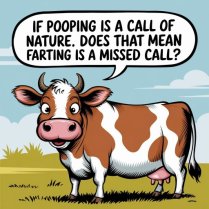
Quizz from Marie & Reno
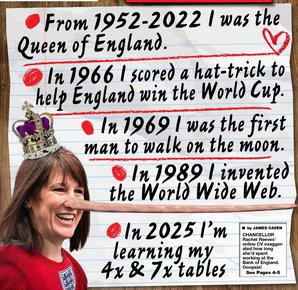
Jeudi 27 février
Some nice presents for Christmas
L 25 1 Je me lève tard et je prends un brunch. I get up late and I have a brunch.
2 Je fais les courses et elle va à la salle de gym. I do the shopping and she goes to the gym.
3 Nous allons habituellement au cinéma le week-end. We usually go to the cinema at the week-end.
4 Nous allons au théâtre tous les mois. We go to the theatre every month.
5 Il ne fait pas la vaisselle. He doesn’t do the washing-up.
6 Elle ne travaille pas le week-end. She doesn’t work at the week-end.
7 Elle se lève tard et va la salle de gym. She gets up late and goes to the gym.
8 Elles ne font pas de cuisine le soir. They don’t do any cooking at night.
9 Ils vont au restaurant pour un dîner tardif. They go to a restaurant for a late diner.
10 Il fait la vaisselle et les courses. He does the washing up and the shopping.
Chez les Potters c’est ce soir la fête de Noël. Tout à coup un portable sonne. Quelqu’un répond.
- Allô ?
- Salut chéri, tu es à la soirée de Noël ?
- Bien sûr, que veux-tu ?
- Écoute. Je suis au garage. J’ai vu le modèle de voiture allemande qui me plaît tant.
- Et il est cher.
- Oui, mais il me plaît.
- Bon, achète-le. Autre chose ?
- Oui, je suis allée chez le bijoutier et j’ai vu un magnifique collier d’émeraudes.
- Eh bien, s’il te plaît, achète-le.
- Merci mon chéri. Une autre chose. Je suis passée à l’agence immobilière et on m’a montré les plans des nouvelles maisons qu’on construit à La Baule.
- Je te donne carte blanche.Si I elle te plaît, tu l’achètes.
- Merci mon amour, je t’aime.
La femme raccroche. L’homme regarde le portable et dit :
- A qui est ce portable ?
Jeudi 5 février
Flore animera les deux groupes
Jeudi 23 janvier
3 Je ne mets jamais mes clés dans ma poche. I never put my keys in my pocket.
4 Bien sût que non. Of course not.
5 Je mets parfois les clés dans ma poche. I sometimes put the keys in my pocket.
6 Celles-ci sont mes clés et celles-là sont tes clés. These are my keys and those are your keys.
7 Il n’habite pas en Ecosse. He doesn’t live in Scotland.
8 Elle ne les met jamais dans son manteau. She never puts them in her coat.
9 Dans ce cas, qu’est-ce que c’est que ça ? In that case, what is this, what are these ?
10 Je ne sais pas chérie. I don’t know dear.
Un archéologue est le meilleur mari qu’une femme puisse avoir : plus elle vieillit, plus il s’intéresse à elle. (Agatha Christie)
Plus je rencontre de gens, plus j’aime mon chien.
Jeudi 16 janvier
Oscar Wilde at customs.
- Avez-vous quelque chose à déclarer ? Demanda un employé des douanes en procédant à une inspection de routine des bagages de Wilde.
- Rien. Répondit Wilde.
- Je n’ai rien à déclarer mon bon monsieur.
Là-dessus il s’interrompit un instant puis ajouta :
- Excepté, bien sûr mon génie.
- Have you anything to declare ? asked a customs official while making a routine inspection of Wilde's luggage.`
- Nothing. replied Wilde.`I have nothing to declare my good man.
Here he paused for a moment and added.
- Except of course my genius.
L23 1 Nous parlons l’allemand couramment. We speak German fluently.
2 C’est une personne de grand talent. She is a very talented person.
3 Elle ne joue pas au piano. She doesn’t play the piano.
6 Ils habitent à Portsmouth. They live in Portsmouth.
7 Ils n’habitent pas à Liverpool. They do not live in Liverpool.
8 Il ne rédige pas de logiciels. He doesn’t write any software.
9 Nous ne parlons pas espagnol couramment. We don’t speak Spanish fluently.
10 Elle n’a pas d’emploi pour l’instant. She does not have a job at the moment.
L 22 1 Cet homme s’appelle Simon. This man is Simon.
2 Il habite Manchester. He lives in Manchester
3 Maggie enseigne dans une école primaire. Maggie teaches in a primary school.
4 Elle aime beaucoup son travail. She likes her job very much.
5 Je travaille près de ma maison. I work near my home.
6 Cette femme s’appelle Sally. This woman’s name is Sally
7 J’aime beaucoup mon professeur. I like my teacher very much.
8 L’école est près de ma maison. The school is near my home.
9 Elle habite et enseigne dans une banlieue de Manchester. She lives and teaches in a suburb of Manchester.
10 Il y a des enfants français, allemands et espagnols dans mon école. There are French, German and Spanish children at my school.
At the garage,
- Can you repair my car by Thursday ?
- No, we’ll have to keep it till the weekend. It should be ready at ten o’clock on Monday morning.
- Not until then ?
- Sorry but we’re snowed under at the moment.
- From Tuesday to Monday, isn’t that a little bit long ?
- Well, there’s a lot to be done. There’s the steering and the brakes to check… If you want it to pass the MoT, it’ll need all that.
- Pouvez-vous réparer ma voiture avant jeudi ?
- Non, à nous devrons la garder jusqu’au week-end. Elle devrait être prête à 10h lundi matin.
- Pas avant ?
- Desolé mais nous sommes débordés en ce moment.
- De mardi à lundi ce n’est pas un peu long ?
- Si, mais il y a beaucoup à faire. Il y a la direction et les freins à vérifier… Si vous voulez passer le Contrôle Technique elle aura besoin de tout ça.
2 Je fais les courses et elle va à la salle de gym. I do the shopping and she goes to the gym.
3 Nous allons habituellement au cinéma le week-end. We usually go to the cinema at the week-end.
4 Nous allons au théâtre tous les mois. We go to the theatre every month.
5 Il ne fait pas la vaisselle. He doesn’t do the washing-up.
6 Elle ne travaille pas le week-end. She doesn’t work at the week-end.
7 Elle se lève tard et va la salle de gym. She gets up late and goes to the gym.
8 Elles ne font pas de cuisine le soir. They don’t do any cooking at night.
9 Ils vont au restaurant pour un dîner tardif. They go to a restaurant for a late diner.
10 Il fait la vaisselle et les courses. He does the washing up and the shopping.
Chez les Potters c’est ce soir la fête de Noël. Tout à coup un portable sonne. Quelqu’un répond.
- Allô ?
- Salut chéri, tu es à la soirée de Noël ?
- Bien sûr, que veux-tu ?
- Écoute. Je suis au garage. J’ai vu le modèle de voiture allemande qui me plaît tant.
- Et il est cher.
- Oui, mais il me plaît.
- Bon, achète-le. Autre chose ?
- Oui, je suis allée chez le bijoutier et j’ai vu un magnifique collier d’émeraudes.
- Eh bien, s’il te plaît, achète-le.
- Merci mon chéri. Une autre chose. Je suis passée à l’agence immobilière et on m’a montré les plans des nouvelles maisons qu’on construit à La Baule.
- Je te donne carte blanche.Si I elle te plaît, tu l’achètes.
- Merci mon amour, je t’aime.
La femme raccroche. L’homme regarde le portable et dit :
- A qui est ce portable ?
Jeudi 5 février
Flore animera les deux groupes
Jeudi 23 janvier
- L 24 1 Elle ne sait pas où ils sont. She doesn’t know where they are.
3 Je ne mets jamais mes clés dans ma poche. I never put my keys in my pocket.
4 Bien sût que non. Of course not.
5 Je mets parfois les clés dans ma poche. I sometimes put the keys in my pocket.
6 Celles-ci sont mes clés et celles-là sont tes clés. These are my keys and those are your keys.
7 Il n’habite pas en Ecosse. He doesn’t live in Scotland.
8 Elle ne les met jamais dans son manteau. She never puts them in her coat.
9 Dans ce cas, qu’est-ce que c’est que ça ? In that case, what is this, what are these ?
10 Je ne sais pas chérie. I don’t know dear.
Un archéologue est le meilleur mari qu’une femme puisse avoir : plus elle vieillit, plus il s’intéresse à elle. (Agatha Christie)
Plus je rencontre de gens, plus j’aime mon chien.
Jeudi 16 janvier
Oscar Wilde at customs.
- Avez-vous quelque chose à déclarer ? Demanda un employé des douanes en procédant à une inspection de routine des bagages de Wilde.
- Rien. Répondit Wilde.
- Je n’ai rien à déclarer mon bon monsieur.
Là-dessus il s’interrompit un instant puis ajouta :
- Excepté, bien sûr mon génie.
- Have you anything to declare ? asked a customs official while making a routine inspection of Wilde's luggage.`
- Nothing. replied Wilde.`I have nothing to declare my good man.
Here he paused for a moment and added.
- Except of course my genius.
L23 1 Nous parlons l’allemand couramment. We speak German fluently.
2 C’est une personne de grand talent. She is a very talented person.
3 Elle ne joue pas au piano. She doesn’t play the piano.
- 4 Je n’ai pas d’emploi. I do not have a job.
6 Ils habitent à Portsmouth. They live in Portsmouth.
7 Ils n’habitent pas à Liverpool. They do not live in Liverpool.
8 Il ne rédige pas de logiciels. He doesn’t write any software.
9 Nous ne parlons pas espagnol couramment. We don’t speak Spanish fluently.
10 Elle n’a pas d’emploi pour l’instant. She does not have a job at the moment.
L 22 1 Cet homme s’appelle Simon. This man is Simon.
2 Il habite Manchester. He lives in Manchester
3 Maggie enseigne dans une école primaire. Maggie teaches in a primary school.
4 Elle aime beaucoup son travail. She likes her job very much.
5 Je travaille près de ma maison. I work near my home.
6 Cette femme s’appelle Sally. This woman’s name is Sally
7 J’aime beaucoup mon professeur. I like my teacher very much.
8 L’école est près de ma maison. The school is near my home.
9 Elle habite et enseigne dans une banlieue de Manchester. She lives and teaches in a suburb of Manchester.
10 Il y a des enfants français, allemands et espagnols dans mon école. There are French, German and Spanish children at my school.
At the garage,
- Can you repair my car by Thursday ?
- No, we’ll have to keep it till the weekend. It should be ready at ten o’clock on Monday morning.
- Not until then ?
- Sorry but we’re snowed under at the moment.
- From Tuesday to Monday, isn’t that a little bit long ?
- Well, there’s a lot to be done. There’s the steering and the brakes to check… If you want it to pass the MoT, it’ll need all that.
- Pouvez-vous réparer ma voiture avant jeudi ?
- Non, à nous devrons la garder jusqu’au week-end. Elle devrait être prête à 10h lundi matin.
- Pas avant ?
- Desolé mais nous sommes débordés en ce moment.
- De mardi à lundi ce n’est pas un peu long ?
- Si, mais il y a beaucoup à faire. Il y a la direction et les freins à vérifier… Si vous voulez passer le Contrôle Technique elle aura besoin de tout ça.
what are these 2 birds
English Story FLOOD at REDON (click)
I saw people working together to save animals and help their neighbors. The flood was very big, but it showed me how kind people can be in tough times. After a few days, the rain stopped, and the water slowly went away. We went back to our home and started to clean up the mess.
- Even though the flood was scary, I learned the importance of helping others and staying strong in difficult situations.

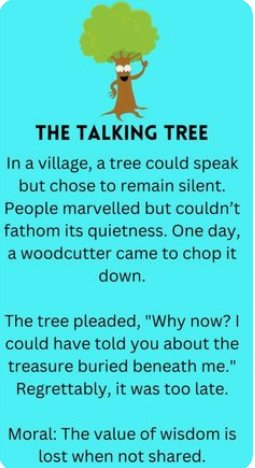
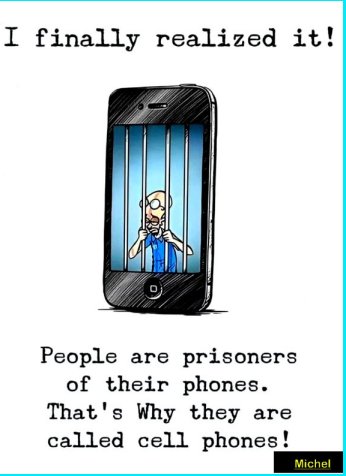
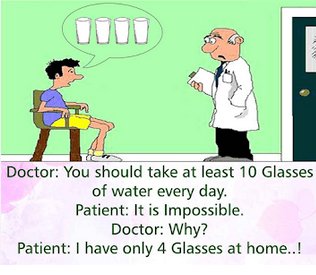
Jeudi 12 décembre
L20 1 A-t-elle de la monnaie ? Has she got any change ?
2 Nous n’avons pas d’amis dans cette ville. We haven’t got any friends in this city.
3 J’habite actuellement à Portsmouth. I live in Portsmouth now.
4 Avez-vous du lait ? Non, je n’en ai pas. Have you got any milk ? No, I haven’t.
5 Je n’en ai pas. S’il vous plaît, aidez-moi. I have nothing. Please help me.
6 Je n’ai rien sauf ce petit pistolet. I haven’t got anything except this small gun.
7 T’as pas une petite pièce ? Have you got any change ?
8 A-t-elle un nouveau chemisier ? Non. Has she got a new blouse ? No, she hasn’t.
9 Elle a des amis à Southampton. She’s got some friends in Southampton.
10 Ils n’ont pas d’argent. They haven’t got any money.
Dans un autobus bondé, à l'heure de pointe, un passager remarqua que l'homme assis en face de lui avait les yeux fermés.
- Vous vous sentez bien? lui demanda-t-il.
- Oui, répondit l'homme assis, c'est juste que je ne supporte pas de voir les femmes debout.
Jeudi 5 décembre
Listen to Flore's latest lesson.
L18 1 Que diriez-vous d’une tasse de thé ? How about a cup of tea ?
2 Au lait avec un sucre s.v.p. White with sugar please.
3 Du thé me convient très bien. Tea’s fine.
4 Nous n’avons pas de lait. We haven’t got any milk.
- 5 Merci beaucoup. Thanks very much.
7 Et si nous prenions des frites ? And what about some chips ?
8 Du café noir me va très bien. Black coffee is fine.
9 Pas de lait ? Pas de problème. No milk ? no problem.
10 Ça te dirait un film ce soir ? How about a film tonight ?
- Combien cela coûte-t-il de se faire arracher une dent ? Demande le patient.
– Cent livres, répond le dentiste.
- 100 livres pour quelques secondes de travail ? Interroge le patient.
Le dentiste sourit et répond :
– Si vous voulez en avoir davantage pour votre argent, je peux vous l’arracher très, très lentement.
Jeudi 28 novembre
L17 1 Puis-je vous aider ? Can I help you ?
2 Non merci. No Thanks
3 Du café ? Oui, s’il vous plaît. Coffee ? Yes please
4 Avez-vous des chips au sel et au vinaigre ? Have you got any salt and vinegar crisps ?
5 Deux pintes de bière s’il vous plaît. Two pints of bitter please.
6 Avez-vous de la bière ? Have you got any beer ?
7 Bien sûr, quel parfum ? Sure what flavour ? 8 Avons-nous des chips ? Have we got any crisps ?
9 Du café ? Non merci. Coffee ? No thanks.1
10 Je peux vous aider. I can help you.
Une vieille dame était allée à Lourdes. Sur le chemin du retour elle fut arrêtée par la douane. Le douanier trouva une bouteille dans sa valise.
- C’est sûrement du whisky, ça, dit-il.
- Oh non, dit la vieille dame. C’est de l’eau bénite de Lourdes.
Le douanier ouvrit la bouteille pour sentir le liquide.
- C’est du whisky, dit-il.
- Dieu soit loué ! Fit la vieille dame. Encore un miracle.
Jeudi 21 novembre
Groupe 17H30 Vous pouvez écouter la leçon sur le petit encart bleu marine ci-dessous.
Groupe 18h30
L16 1 Qu’est-ce qu’il a ce téléphone ? What’s wrong with this phone ?2 Cet appareil photo est cassé. This camera is broken.
3 J’ai un problème. I’ve got a problem. 4 Puis-je aider ? Can I help ?
5 C’est mon café à moi. That’s my coffee.
6 Elle a un appartement à Londres. She’s got a flat in London. 7 Exactement. C’est ça mon problème. Exactly. That’s my problem.
8 J’ai un appareil photo. I’ve got a camera.
9 Est-ce que tu peux aider Fred ? Can you help Fred ?
10 Ce téléphone est cassé. This téléphone is broken.
L’argent.
John est mourant. Toute la famille est auprès de lui. La fin est proche. En voyant Bill, son aîné, il sort de sous l’oreiller sa vieille montre que tous connaissent.
– Regarde, mon fils. Cette montre me vient de ma famille. Elle a appartenu à ton arrière arrière, grand-père, le fondateur de l’entreprise familiale. Ensuite, elle fut portée par ton arrière-grand-père et par ton grand-père, qui me l’a transmise sur son lit de mort. Elle te plaît ?
– Écoute papa, ce n’est pas le moment.
–Je le sais. Mais elle te plaît ?
–Naturellement qu’elle me plaît.
–Eh bien, je te la vends !
John is dying. His family is around him. The end is coming. Seeing Bill, his elder son, he takes out from under the pillow his old watch that everyone knows.
- Look son. This watch comes from my faily. From your grand grandfather who created our family business. Then your grandfather gave it to me on his deathbed.
- Do you like it ?
- Listen dad, this isn't the time.
- I know it. Do you like it ?
- Of course I do.Then I sell it to you.
-
Jeudi 14 novembre
L15 1 Y a-t-il du café ? Is there any coffee ?
4 Elle a vraiment soif. She’s really thirsty.
5 Ce petit déjeuner est super. This is a great breakfast.
6 Y a-t-il des céréales pour le petit déjeunet ? Is there any cereal for breakfast ?
7 Et y a-t-il du thé ? And is there any tea ?
8 J’ai très faim. I’m really hungry.
9 Oui, elle a du lard fumé. Yes, she has some bacon.
10 Ils peuvent prendre du café. They can have some coffee.
Salut, John. Comment vont les affaires ?
- Mal, depuis que j’ai fait faillite, que ma femme m’a quitté et que mon appartement a brûlé, je dors comme un bébé.
- Tu dors comme un bébé ? Comment est-ce possible ?
- Oui, comme un bébé, je me réveille toutes les heures et je me mets à pleurer
https://www.youtube.com/watch?v=NHg8zaSgNuA
Jeudi 17 octobre
L13 1- Appelle-moi cet après-midi John. Call me this afternoon John.
2 - Y a-t-il des boîtes de nuit à Redon ? Are there any night-clubs in Redon ?
5 - Mais il y a un aéroport. But there is an airport.
6 - Y a-t-il une rivière ? Oui il y en a une. Is there a river ? Yes there is.
7 - Y a –t-il des ponts de pierre ? Are there any stones bridges ?
8 - Il y a au moins 10 musées. There are at least ten museums.
9 - Elle s’appelle Karen. Elle est artiste. She’s called Karen. She’s an artist.
10 – Où est la gare ? Where is the railway station ?
L15 1 Y a-t-il du café ? Is there any coffee ?
- 2 Y a-t-il des œufs ? Are there any eggs ?
4 Elle a vraiment soif. She’s really thirsty.
5 Ce petit déjeuner est super. This is a great breakfast.
6 Y a-t-il des céréales pour le petit déjeunet ? Is there any cereal for breakfast ?
7 Et y a-t-il du thé ? And is there any tea ?
8 J’ai très faim. I’m really hungry.
9 Oui, elle a du lard fumé. Yes, she has some bacon.
10 Ils peuvent prendre du café. They can have some coffee.
Salut, John. Comment vont les affaires ?
- Mal, depuis que j’ai fait faillite, que ma femme m’a quitté et que mon appartement a brûlé, je dors comme un bébé.
- Tu dors comme un bébé ? Comment est-ce possible ?
- Oui, comme un bébé, je me réveille toutes les heures et je me mets à pleurer
STOP SAYING "HOW ARE YOU" say +++
https://www.youtube.com/watch?v=y124imaEqOM&t=47shttps://www.youtube.com/watch?v=NHg8zaSgNuA
Jeudi 17 octobre
L13 1- Appelle-moi cet après-midi John. Call me this afternoon John.
2 - Y a-t-il des boîtes de nuit à Redon ? Are there any night-clubs in Redon ?
- 3 - Y a-t-il une gare routière ? Is there a bus station ?
5 - Mais il y a un aéroport. But there is an airport.
6 - Y a-t-il une rivière ? Oui il y en a une. Is there a river ? Yes there is.
7 - Y a –t-il des ponts de pierre ? Are there any stones bridges ?
8 - Il y a au moins 10 musées. There are at least ten museums.
9 - Elle s’appelle Karen. Elle est artiste. She’s called Karen. She’s an artist.
10 – Où est la gare ? Where is the railway station ?
Paul saw someone in the street he recognised as his friend Woodall.
- Woodall, he said, what happened to you ?You used to be fat and now you’re thin. You used to have hair and now you are bald. You used to have perfect eyesight and now you wear glasses.
The man looked at him in astonishment :
- Listen sir, my name is not Woodall. It’s Shute.
- Oh ! Paul exclaimed. You’ve changed your name too !
Paul vit dans la rue quelqu’un qu’il prit pour son ami Woodall.
- Woodall, dit-il, qu’est-ce qui t’es arrivé ? Tu étais gros et maintenant tu es mince. Tu avais des cheveux et maintenant tu es chauve. Tu voyais parfaitement et maintenant tu portes des lunettes.
L’homme, étonné, regarda Paul. :
- Écoutez monsieur, je ne m’appelle pas Woodall. Je m’appelle Shute.
- Oh !, s’exclama Paul. Tu as aussi changé de nom !
